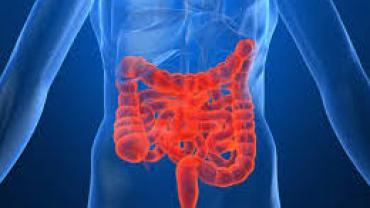
Irritable bowel syndrome (IBS) is a chronic and debilitating functional disorder that impacts many individuals and yet is poorly understood. There is no single known cause although stress and diet can exacerbate symptoms. Many practitioners use trial and error approaches to their patients’ symptoms with no guarantee of success.
A new study just published December 2015 in the British Medical Journal Open Gastroenterology demonstrated that many patients with IBS are deficient in vitamin D.
Researchers observed a significant association between vitamin D levels and the severity of IBS symptoms. This study found that 82% of the 51 participants with IBS had insufficient vitamin D levels. In addition there was an association between vitamin D status and the patients’ perceived quality of life. Many integrative doctors already assess their patients’ vitamin D levels and address it accordingly; however this recent evidence provides a potential new insight into the condition.
The results are clear that patients with IBS should have their vitamin D levels tested and would benefit from supplementation. A common problem I see is that many patients do get their vitamin D levels checked by their primary care doctor or specialist but they do not receive any dosing recommendations or follow-up advice. Many patients who are vitamin D deficient are told to purchase a vitamin D supplement but most are not told how much to take. So what do they do? The patient goes to their local drugstore buys vitamin D at 1000 IU per capsule and proceeds to follow the direction on the bottle taking one capsule daily. They follow this regimen for six months to one year until they are retested again to find out they are still deficient. In general most individuals are going to need anywhere between 5000 IU to 10000 IU daily for several months to address a deficiency and they may need somewhere in the vicinity of 5000 IU for a maintenance dose.
One of the researchers in this study has personally suffered from IBS for over 30 years. She noted a significant improvement in her symptoms from taking a high dose vitamin D supplement five years prior.
The role of vitamin D supplementation in other GI conditions has been demonstrated in numerous studies showing the association between a vitamin D deficiency and disease severity in inflammatory bowel disease.
It is important to remember that IBS affects each patient differently with triggers varying from person to person making the disease very difficult to treat. Therefore it is important to consider stool testing and food sensitivity testing and to rule out other issues such as SIBO (small intestinal bacterial overgrowth). Many patients experience diarrhea or constipation as a result of their symptoms or their bowel habits can alternate between the two.
In addition to vitamin D Saccharomyces boulardii may also be of great benefit for IBS patients. This nonpathogenic yeast has been tested for clinical efficacy in several types of acute gastrointestinal conditions including IBS antibiotic-associated diarrhea Clostridium difficile infection acute diarrhea enteral nutrition-related diarrhea traveler’s diarrhea Crohn’s disease ulcerative colitis and Helicobacter pylori infections.
In Part 2 of this blog series we will delve a little deeper into IBS and will take a look at additional nutrients that may be of great benefit to individuals suffering with this condition.
By Michael Jurgelewicz DC DACBN DCBCN